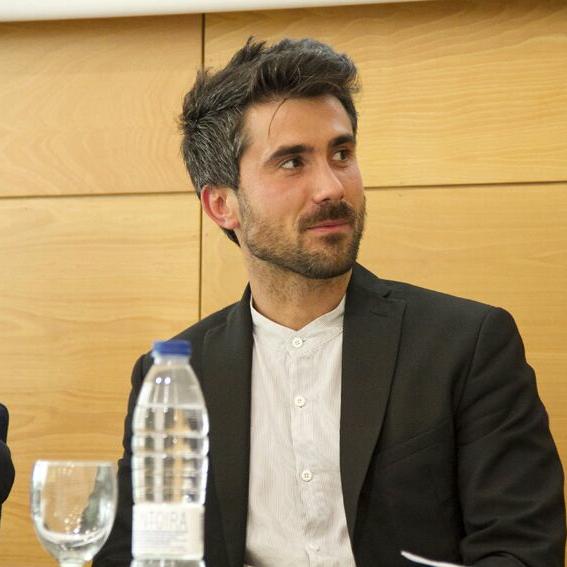Studying at the University of Verona
Here you can find information on the organisational aspects of the Programme, lecture timetables, learning activities and useful contact details for your time at the University, from enrolment to graduation.
Academic calendar
The academic calendar shows the deadlines and scheduled events that are relevant to students, teaching and technical-administrative staff of the University. Public holidays and University closures are also indicated. The academic year normally begins on 1 October each year and ends on 30 September of the following year.
Course calendar
The Academic Calendar sets out the degree programme lecture and exam timetables, as well as the relevant university closure dates..
| Period | From | To |
|---|---|---|
| 1° periodo lezioni (1A) | Sep 15, 2022 | Oct 27, 2022 |
| 1° periodo lezioni (1B) | Nov 4, 2022 | Dec 16, 2022 |
| 2° periodo lezioni (2A) | Feb 13, 2023 | Mar 25, 2023 |
| 2° periodo lezioni (2B) | Apr 3, 2023 | May 23, 2023 |
| Session | From | To |
|---|---|---|
| Prove parziali 9/12 CFU - Prove finali 6 CFU del periodo 1A | Oct 28, 2022 | Nov 3, 2022 |
| 1° appello invernale - dicembre 2022 | Dec 17, 2022 | Dec 23, 2022 |
| Sessione invernale - 2 appelli | Jan 9, 2023 | Feb 11, 2023 |
| Prove parziali 9/12 CFU - Prove finali 6 CFU del periodo 2A | Mar 27, 2023 | Apr 1, 2023 |
| Appello riservato a studenti fuori corso | Mar 27, 2023 | Apr 1, 2023 |
| Sessione estiva - 3 appelli | May 24, 2023 | Jul 26, 2023 |
| Sessione autunnale - 1 appello | Aug 24, 2023 | Sep 16, 2023 |
| Session | From | To |
|---|---|---|
| Sessione estiva - giugno 2023 | Jun 22, 2023 | Jun 24, 2023 |
| Period | From | To |
|---|---|---|
| Tutti i Santi | Nov 1, 2022 | Nov 1, 2022 |
| Festa dell’Immacolata | Dec 8, 2022 | Dec 8, 2022 |
| Vacanze natalizie | Dec 23, 2022 | Jan 8, 2023 |
| Vacanze di Pasqua | Apr 7, 2023 | Apr 10, 2023 |
| Festa della Liberazione | Apr 25, 2023 | Apr 25, 2023 |
| Festa del lavoro | May 1, 2023 | May 1, 2023 |
| Festività Santo Patrono | May 21, 2023 | May 21, 2023 |
| Festa della Repubblica | Jun 2, 2023 | Jun 2, 2023 |
Exam calendar
Exam dates and rounds are managed by the relevant Law Teaching and Student Services Unit.
To view all the exam sessions available, please use the Exam dashboard on ESSE3.
If you forgot your login details or have problems logging in, please contact the relevant IT HelpDesk, or check the login details recovery web page.
Should you have any doubts or questions, please check the Enrollment FAQs
Academic staff
 bernardo.calabrese@univr.it
bernardo.calabrese@univr.it
 mila.dallapreda@univr.it
mila.dallapreda@univr.it
 roberto.flor@univr.it
roberto.flor@univr.it
 stefano.gatti@univr.it
stefano.gatti@univr.it
 mariangela.massella@univr.it
mariangela.massella@univr.it
 cinzia.peraro@univr.it
cinzia.peraro@univr.it
 pietro.schiro@univr.it
pietro.schiro@univr.it
 diego.tilola@univr.it
diego.tilola@univr.it
Study Plan
The Study Plan includes all modules, teaching and learning activities that each student will need to undertake during their time at the University.
Please select your Study Plan based on your enrollment year.
1° Year
| Modules | Credits | TAF | SSD |
|---|
2° Year activated in the A.Y. 2023/2024
| Modules | Credits | TAF | SSD |
|---|
6 modules among the following| Modules | Credits | TAF | SSD |
|---|
| Modules | Credits | TAF | SSD |
|---|
6 modules among the following| Modules | Credits | TAF | SSD |
|---|
Legend | Type of training activity (TTA)
TAF (Type of Educational Activity) All courses and activities are classified into different types of educational activities, indicated by a letter.
Type D and Type F activities
Le attività che consentono l’acquisizione dei crediti riservati alle attività formative a libera scelta dello studente (TAF D) sono le seguenti:
- Un insegnamento previsto nell’elenco delle attività formative (TAF D) allegato al piano didattico del corso di laurea in Diritto per le tecnologie e l’innovazione sostenibile;
- Un insegnamento attivato nei Corsi di studi afferenti al Collegio didattico;
- Un laboratorio didattico attivato nei Corsi di studi afferenti al Collegio didattico;
- Un laboratorio didattico attivato nei Corsi di studi afferenti al Dipartimento di Scienze Giuridiche;
- Un insegnamento previsto dall’Offerta Formativa di Ateneo, non impartito nell’ambito dei corsi di studi afferenti al Collegio didattico: il riconoscimento dei crediti acquisiti sarà subordinato alla preventiva presentazione di coerenti programmi formativi valutati dalla Commissione istruttoria per la didattica e approvati dal Collegio didattico.
- Attività formative organizzate dai singoli docenti del Collegio didattico o del Dipartimento di Scienze Giuridiche: previa approvazione del Collegio ad esse verrà attribuito, dopo un’apposita verifica, un credito per ogni 6 ore di frequenza obbligatoria;
- Attività formative che implicano la partecipazione a convegni o seminari organizzati sotto il “logo” del Dipartimento di Scienze Giuridiche o dell’Ateneo: devono essere preventivamente approvate dal Collegio didattico indicando un docente di riferimento del Collegio didattico ovvero del Dipartimento di Scienze Giuridiche. Un credito per ogni giornata di convegno o di seminario si acquisisce dopo apposita verifica che dimostri l’avvenuta fruizione culturale del tema del convegno o del seminario.
Le attività che consentono l’acquisizione dei crediti riservati alle ulteriori attività formative (TAF F) sono le seguenti:
• Ulteriori competenze linguistiche (3 CFU);
• Stage;
• Un laboratorio didattico attivato nei Corsi di studi afferenti al Collegio didattico;
• Un laboratorio didattico attivato nei Corsi di studi afferenti al Dipartimento di Scienze Giuridiche.
Al link Compilazione del piano didattico - Giurisprudenza le informazioni e la modulistica per l'inserimento di attività non selezionabili in autonomia dallo studente in sede di compilazione del piano degli studi.
| years | Modules | TAF | Teacher |
|---|---|---|---|
| 1° 2° | CONFLICT. RECOGNIZE, PREVENT, MANAGE | D |
Annalisa Ciampi
(Coordinator)
|
| 1° 2° | Conflict. Recognize, prevent, manage | D |
Annalisa Ciampi
(Coordinator)
|
| 1° 2° | Conflict. Recognize, prevent, manage | D |
Annalisa Ciampi
(Coordinator)
|
| 1° 2° | Building a green and sustainable Europe | D |
Caterina Fratea
(Coordinator)
|
| 1° 2° | Landscape and law in the Veneto region. A course of lectures | D |
Matteo Nicolini
(Coordinator)
|
| 1° 2° | Lab.: Laboratorio di tecnica di redazione dei contratti | D |
Andrea Caprara
(Coordinator)
|
| 1° 2° | The fashion lab (2 ECTS) | D |
Caterina Fratea
(Coordinator)
|
| years | Modules | TAF | Teacher |
|---|---|---|---|
| 1° 2° | An introduction to Project Management | D |
Matteo Nicolini
(Coordinator)
|
| 1° 2° | Infrastrutture, logistica e industria: strategie ed azioni nella nuova globalizzazione | D |
Matteo Nicolini
(Coordinator)
|
| years | Modules | TAF | Teacher |
|---|---|---|---|
| 1° 2° | CONFLICT. RECOGNIZE, PREVENT, MANAGE | D |
Annalisa Ciampi
(Coordinator)
|
| 1° 2° | Conflict. Recognize, prevent, manage | D |
Annalisa Ciampi
(Coordinator)
|
| 1° 2° | Conflict. Recognize, prevent, manage | D |
Annalisa Ciampi
(Coordinator)
|
| 1° 2° | Building a green and sustainable Europe | D |
Caterina Fratea
(Coordinator)
|
| 1° 2° | Future's Festival | D |
Francesca Ragno
(Coordinator)
|
| 1° 2° | Lab.: Laboratorio di tecnica di redazione dei contratti | D |
Andrea Caprara
(Coordinator)
|
| 1° 2° | Laboratori strumenti apprendimento DSA | D |
Fabio Ferrari
(Coordinator)
|
| 1° 2° | The fashion lab (2 ECTS) | D |
Caterina Fratea
(Coordinator)
|
| 1° 2° | Tai-Ti aiuto io | F |
Alessandra Cordiano
(Coordinator)
|
| years | Modules | TAF | Teacher |
|---|---|---|---|
| 1° 2° | Lab.: Laboratorio di tecnica di redazione dei contratti | D |
Andrea Caprara
(Coordinator)
|
| 1° 2° | The fashion lab (2 ECTS) | D |
Caterina Fratea
(Coordinator)
|
| years | Modules | TAF | Teacher | |
|---|---|---|---|---|
| 1° | Legal English B2 | F |
Francesca Ragno
|
|
| 1° 2° | Lab.: Laboratorio di tecnica di redazione dei contratti | D |
Andrea Caprara
(Coordinator)
|
|
| 1° 2° | The fashion lab (2 ECTS) | D |
Caterina Fratea
(Coordinator)
|
|
Law of the digital economy (2023/2024)
Teaching code
4S009815
Teacher
Coordinator
Credits
6
Language
English
Scientific Disciplinary Sector (SSD)
IUS/05 - ECONOMICS LAW
Period
2° periodo lezioni (2A) dal Feb 12, 2024 al Mar 22, 2024.
Courses Single
Authorized
Learning objectives
The course is included in the learning area on Internationalization of the markets. Starting from the relationship between law, economics, and digital technologies, to move to the perspective of the European Union's regulatory framework on the data economy and digital platforms aimed at protecting the main economic and non-economic public interests that come to the fore, the course seeks to provide legal tools for understanding and analyzing digital markets. The course will also address the issue of the liability of the digital economy operators, as well as the economic integration and the efficient functioning of the markets of which they are part.
At the end of the course, the student will acquire the ability to formulate, autonomously and critically, complex opinions and argumentations on the main topics covered by the course.
Students will also acquire the ability to face and solve practical problems typical of the professional context in which they will operate, thus orienting their competence to the goal of contractual compliance and to the prevention of the judicial conflicts. Students will also be able to verify the practical and applicative consequences of the theoretical and regulatory framework and to set, in written and oral form (and also through group work, written exercises and the method of Problem Based Solving - PBS), the solution to concrete issues, using the appropriate and specific disciplinary vocabulary, adopting the correct lines of reasoning and argumentation, and formulating autonomous judgments. The teaching method used is functional to the continuous learning and updating of acquired knowledge.
Prerequisites and basic notions
There is no specific prior knowledge required.
Program
The course will cover some of the main EU laws and regulations in the field of Digital Economy. In addition to the internal market rules provided for in the Treaty on the functioning of the EU (freedom of movement and competition), the regulatory acts that will be analyzed include: the directive on electronic commerce 2000/31, regulation 2019/1150 governing between companies and platforms, the Digital Markets Act and the Digital Services Act. The lessons are dedicated to the following topics: What is the Digital Economy? What definition does the EU legal system give it? • The main market sectors concerned • What strategies and modalities is the EU adopting or should adopt to regulate the digital economy? • The relevance of EU law on online market access • Consumer protection in the digital economy • The role and legal protection of data in the digital economy • Protection of EU competition in the digital economy and protection of smaller businesses
Bibliography
Didactic methods
This is a 36-hour course (6 CFU) and will be held in English with the support of previously indicated slides and study materials (eg legislation and jurisprudence of the European Union). The course will be partly in the presence (maximum 5 credits, 30 hours) and partly online (with the invitation of speakers from foreign universities) (at least 1 credits, 6 hours). Students will be invited not only to participate in the discussion on the various topics introduced and explained by the teacher, also on the basis of the previous reading of the aforementioned study materials, but - following flipped learning and group-based learning methodologies - also to conduct independent research on selected themes (including consumer protection in digital markets).
Learning assessment procedures
The exam has the aim of verifying the level of achievement of the training objectives indicated above. For attending students, the final mark will be partly (60%) determined by the student's activity participation in the lessons including a presentation in the classroom of an in-depth work done at home. And partly (40%) by a written test (60 minutes) at the end of the course, which will focus on topics covered in class and on the readings indicated during the course. The language of the exam can be in Italian or English at the student's choice). For non-attending students, the exam consists of a written test (60 minutes) in English or in Italian (the student's choice).
Evaluation criteria
For attending students, the final grade will be awarded on the basis of the following three criteria. 1) in the presentation in the classroom and in the written test, the ability to demonstrate: a) knowledge of the relevant legislation and jurisprudence and the relative doctrinal analysis; b) effective understanding of the notions, general principles and above all the underlying 'logic' of the subject learned during the lessons and from the study of texts (e.g., which objectives are pursued by the legislator, which public interests are at stake, what are the basic general legal principles, what is the role of the various institutional actors, what are the macro-changes that have taken place in the legal framework). 2) in answering the aforementioned questions, the use of the correct legal terminology. 3) the degree of student participation in the discussions held during the lessons. For non-attending students, the (written) exam consists of three/four questions relating to the reference text, against which the student will be evaluated on the basis of two criteria: 1) the ability to demonstrate: a) knowledge of the relevant legislation and jurisprudence and the relative doctrinal analysis; b) effective understanding of the notions, general principles and above all the underlying 'logic' of the matter learned from the study of the texts (e.g., which objectives are pursued by the legislator, which public interests are at stake, which are the principles general legal background, what is the role of the various institutional actors, what are the macro-changes that have taken place in the legal framework). 2) The use of correct legal terminology.
Criteria for the composition of the final grade
See the exam methods
Exam language
English/Italian
Career prospects
Module/Programme news
News for students
There you will find information, resources and services useful during your time at the University (Student’s exam record, your study plan on ESSE3, Distance Learning courses, university email account, office forms, administrative procedures, etc.). You can log into MyUnivr with your GIA login details: only in this way will you be able to receive notification of all the notices from your teachers and your secretariat via email and soon also via the Univr app.
Internships
Internships are aimed at enabling students to gain direct knowledge of the world of work and to acquire specific professional skills.
Internships are carried out under the responsibility of an individual lecturer, and can be carried out in professional firms, public administration bodies and companies recognised by the University of Verona.
Any CFU credits gained by doing internships will be recognised and recorded by the University in accordance with the relevant University regulations in force (Regolamento d’Ateneo per il riconoscimento dei crediti maturati negli stage universitari).
For further information on internships, please go to: https://www.univr.it/it/i-nostri-servizi/stage-e-tirocini.

 +39 045 802 8549
+39 045 802 8549


































